Spirulina 500mg
Out of stock
- Spirulina suppresses the proliferation of Candida albicans.
- Spirulina (1 gram per day) inhibits Leukoplakia (a pre-cancerous condition that can lead to Mouth Cancer).
- Controls bad breathe
- Helps protect against liver damage
>>>Read More
15,090CFA
Out of stock
Detailed Product Description / Supplement Facts
The healthiest food is your best defense!
Benefits 0f Spirulina
- Spirulina suppresses the proliferation of Candida albicans.
- Spirulina (1 gram per day) inhibits Leukoplakia (a pre-cancerous condition that can lead to Mouth Cancer).
- Spirulina enhances the production and activity of Macrophages.
- Spirulina enhances the function of NK Lymphocytes.
- Spirulina enhances the production and activity of Phagocytes.
- Spirulina reduces total serum Cholesterol levels and lowers LDL Cholesterol levels.
- Spirulina alleviates Hypoglycemia by increasing Blood Sugar levels and increasing the endogenous production of Insulin (due to Glycogen).
- Spirulina Enhances the Function of Cytokines.
- Spirulina increases the production of Interleukin 1
- Spirulina stimulates the body’s production of Adrenaline.
- Spirulina Chlorophyll is a natural cleanser.
- Spirulina alkalizes the body.
- Spirulina contains the most remarkable concentration of nutrients known in any food, plant, grain or herb
- Spirulina aids weight loss.
- Spirulina controls bad breathe
- Spirulina dysbacteriose
- Spirulina helps protect against liver damage and cirrhosis (liver failure) in those with chronic hepatitis
- Spirulina reduces allergic reactions from radiation sickness
- Spirulina is an ideal anti-aging food
- Spirulina is functional food for intestinal flora. It builds healthy lactobacillus, aiding assimilation and elimination and relieving constipation.
Spirulina has putative antiviral, hypocholesterolemic, antioxidant, hepatoprotective, antiallergic and immune-modulatory activities
Spirulina the world’s great discovery
Spirulina is a blue-green algae which is believed to be the first form of plant life on earth, nearly 3.5 billion years old. The story of Spirulina was revealed to public in the 70s through a great discovery of some scientists who unexpectedly found that the way of life of one African tribe (around Lake Tchad) was interesting. Even though those villagers were living in a poor area and had less chance to consume protein from meat, they could still live healthily on “Dihe”, a common type of algae grown around the lake in that area. This alga, which later called “Spirulina”, was usually brought from the surface of that lake and later dried in the heat. These villagers had no deficiencies and had a high life expectancy and less diseases than neighboring villages. Through its simple characteristic, Spirulina was amazingly believed to have contained a variety of high quality nutrients. Spirulina is a type of blue-green algae found in most lakes and ponds. It has been consumed for thousands of years by Mexican (Aztecs, Mayans), African, and Asian peoples. It has been enjoyed by millions of people as a natural food supplement in the USA, Japan and Europe for over 15 years. This edible blue-green algae is 62-70% all-vegetable protein, easy-to-digest, with the highest food concentration of beta-carotene, iron, vitamin B-12, and the rare gamma-linolenic acid (GLA). It is also the highest plan source of tryptophan.
Why is spirulina called super health food?
It is known as “The super food of the 21st Century” because it contains the most remarkable concentration of nutrients known in any food, plant, grain or herb. 100g contain 70g of the highest quality protein available. Higher in protein value than beef, chicken, turkey, eggs, soybeans, rice, tofu or wheat (3 times more than that in beef or fish, 4 times that of pork and 1,5 times that of Soya beans). This protein is 95% digestible or absorbable compared to 20% from meat protein. It contains 18 amino acids essential for human life (including all of the essential amino acids that the body cannot produce), iron, calcium, sodium, potassium, copper, magnesium, manganese, phosphorus, selenium, germanium, boon, molybdenum, copper, zinc, iodine, chromium, vitamins (A, C, D, E, K, Biotin, Inositol, B, B2, B3, B6, Foliate, B12, Pantothenic acid) beta-carotenes, phytonutrients like gamma linolenic acid, glycolipids, sulpholipids and polysaccharides, ribose, nucleic acid, cholinesterase, cynophycine, manitol, caorotenoids chlorophyll, phenols and enzymes. It is rich in glycogen, which is rarely found in plants. Glycogen is stored in the liver for quick energy. It is richer in chlorophyll than alfalfa and wheat grass and contains no fats or starches.
Researchers at NASA found it to be an excellent, compact space food for astronauts (1 kg. of Spirulina is equivalent to 1000 kgs. of assorted vegetables). International health organisations have hailed Spirulina as one of the “Greatest Superfoods on Earth”. As an ideal food supplement, Spirulina provides the body with all essential nutrients required daily, leaving you fresh, active and energetic throughout the day.
- Spirulina is the highest food source of beta-carotene.
It contains 25 times more beta-carotene than in carrots. Spirulina is the richest Beta Carotene food, with a full spectrum of ten mixed carotenoids. About half are orange carotenes: alpha, beta and gamma and half are yellow xanthophylls. They work synergistically at different sites in our body to enhance antioxidant anticancer protection. Beta-carotene is pro-Vitamin A and helps protect your eyesight.
- Spirulina is the highest source of Vit. B-12
It contains 250% more Vit B12 than cow liver which is the richest animal source of Vit B12. This vitamin calms your nerves and heps fight stress.
- Spirulina is the highest plant source of Iron,
Which is easier to absorb than in supplement tablets (contains 58 times more iron than in raw spinach and 27 times more than raw liver.)
- Spirulina is one of the world’s richest natural sources of GLA (gamma linolenic acid)
This is a rare essential fatty acid. Gamma-linolenic acid in mother’s milk helps develop healthy babies. Studies show nutritional deficiencies can block GLA production in your body, so a good dietary source of GLA can be important. Spirulina is the only other whole food with GLA. It helps reduces cholesterol benefits the heart and PMS and keeps skin healthy and beautiful. A food source of GLA is important, especially for women. Known GLA foods are mother milk and oil extracts of evening primrose, black currant and borage seeds. Spirulina is a potent source, an astonishing 1% by weight! Four spirulina tablets contain equivalent GLA to a capsule of primrose oil.
- Spirulina is very rich in phtonutrients
Spirulina’s dark color comes from a rainbow of natural pigments. They harvest sunlight at different wavelengths and protect from too much sun. These pigments offer unusual health benefits and help synthesize many enzymes necessary for regulating body metabolism. They are chlorophyll (green), carotenoids (yellow and orange) and phycocyanin (blue), the dominant color. Spirulina contains 4x more Chlorophyll than in green plants Phytonutrients help in detoxification.
- Spirulina is rich in antioxidants
Spirulina is the best natural source of anti oxidants, which fight aging. The antioxidants in Spirullina are Beta-carotene, Vit C, Vit E, selenium, manganese, zeaxanthin, zinc copper, iron and chromium.
- Protein Supplement
Amino acids make up 62-71% of spirulina. Because it is a rich source of protein and other nutrients, spirulina has been used traditionally as a nutritional supplement by people who cannot obtain sufficient calories or protein through diet alone and by those whose nutritional requirements are higher than normal, such as athletes.
- Weight loss
It contains phenylalanine, which acts on the brain’s appetite center to decrease hunger pangs – while also keeping your blood sugar at the proper level. If you’d like to slim down, this is a wonderful aid for weight reduction. Take three 500mg tablets one-half hour before meals. Once the dosage begins to work, decrease to two or one tablet before meals. It is not an appetite suppressant in any way, and contains no drugs or chemicals that trick the body. It is simply super concentrated, easily digested natural nutrition. With digestion being the largest process occurring in the body the less work the body has to do to extract the nutrients from the food, the more it can spend using them on repair, growth and vital functions. This is exactly what the body needs to make you less hungry.
- Anemia
Animal studies suggest that spirulina promotes hematopoiesis (formation and development of red blood cells). This is thought to be due to the high levels of iron present in this food supplement. Phycocyanin stimulates the production of blood (hematopoiesis).
- Allergic Reactions
Animal and test tube studies suggest that spirulina may protect against allergic reactions. It appeared to increase production of anti-inflammatory chemicals known as interferons and interleukins. Consequently, many professionals believe that spirulina might possibly decrease or prevent some allergic responses and block the release of histamine from mast cells during an allergic reaction. By blocking histamine release, spirulina may prevent or lessen histamine’s effects, which include blood vessel expansion, muscle contraction, and stomach acid production. Histamine release leads to allergy symptoms such as a runny nose, watery eyes, hives, and soft-tissue swelling).
- Antibiotic-related Illnesses – Dysbacteriose
Although antibiotics destroy unwanted organisms in the body, they may also kill “good” bacteria called probiotics (such as Lactobacillus acidophilus), which sometimes results in diarrhea. In test tubes, spirulina has promoted the growth of L. acidophilus and other probiotics. Whether this positive laboratory finding will translate into protection from antibiotic-related diarrhea is not clear at this time.
- Viral Infection
Test tube studies suggest that spirulina has activity against herpes, influenza, cytomeglovirus, and human immunodeficiency virus (HIV). Spirulina also appears to block the entrance of viral cells into host cells. Several viruses, including HIV (the virus that causes AIDS), were apparently killed or damaged by spirulina or chemicals derived from it in recent clinical trials. Additional animal studies have somewhat substantiated these antiviral effects, but much more study is needed to prove spirulina’s ability to treat and prevent viral diseases.
Spirulina contains glycolipids and cerebroside sulphate, which have the ability to inhibit viral replication in HIV virus, Herpes simplex and genitalis, HCV, Influenza a virus, Mumps and Measles virus.
Reports from HIV-positive patients and children with malnutrition show Spirulina helps to boost the immune system.
- Oral Cancer
In one study, 87 people who chewed tobacco and had a precancerous lesion known as leukoplakia were randomly assigned to receive Spirulina fusiformis or placebo. Lesions were significantly more likely to disappear in the spirulina group than in the placebo group. More research in this area will be very helpful.
- Liver Disorders
There is some preliminary evidence that spirulina may help protect against liver damage and cirrhosis (liver failure) in those with chronic hepatitis. More research is needed in this area.
- Skin
Spirulina is also contained in some skin care products due to its moisturizing and tightening properties, and components derived from spirulina may have properties to help reduce inflammation in, for example, arthritis. More research is needed in this latter area. Spirulina is used for facemasks and for strong and flexible nails
- Spirulina boosts immunity and clears bacterial infections
Amid reports of new viruses, drug-resistant bacteria, and ineffective antibiotics, scientists are discovering the ability of certain foods to strengthen the immune system and fight problems associated with aging. Scientific reports from around the world indicate that spirulina, a blue-green algae that has been living on the planet for 3.6 billion years, may be on of these disease-preventing, anti-aging foods. ). Animal and test tube studies suggest that spirulina increases production of antibodies, cytokines (infection fighting proteins), and other cells that improve immunity and help ward off infection and chronic illnesses such as cancer. A growing number of scientific studies have documented its immune enhancement benefits.
Petaluma, Sacramento, CA March 5, 1995 -The 44th Western Poultry Disease Conference-
Scientists announced the natural food Spirulina dramatically strengthens the immune system. Immunologist and Professor M.A. Qureshi, Ph.D., released a study on the “Immunomodulary Effects of Spirulina Supplementation in Chickens” In this study small daily doses of spirulina in a poultry diet (less than 1%) greatly improve T-cell and thymus function. Spirulina especially boosts cells called macrophages, the first line of body defense. These cells communicate with T-cells to coordinate the fight against infections. Spirulina caused these cells to increase in number, be more active and display more effective microbial killing. This is the cellular immune system, which includes T-cells, Macrophages, B-cells and the anti-cancer Natural Killer cells. These cells circulate in the blood and are especially rich in body organs like the liver, spleen, thymus, lymph nodes, adenoids, tonsils and bone marrow.
Spirulina up-regulates these key cells and organs, improving their ability to function in spite of stresses from environmental toxins and infectious agents, This means Spirulina fed birds are much more resistant to infection, with no undesirable side effects. Spirulina does not only build up the cellular arms of the immune system it also accelerates production of the humoral system, (antibodies and cytokines), allowing it to better protect against invading germs. The whole immune system array of killer cells, helper cells and antibody production is supercharged. Researchers are testing the theory that Spirulina acts like a broadspectrum vaccine against bacteria. It may also protect against other disease causing microbes and cancer. Because it is a safe natural food, it has created a sensation among animal scientists. They are scrambling to replace ineffective antibiotics with probiotics Spirulina that strengthen immune systems and prevent disease.
Scientists in China and Japan independently reported Spirulina and its extracts fed to mice increase macrophage function, antibody production and infection-fighting T-cells. One study found Spirulina extracts inhibited cancer by boosting the immune system. The active phytonutrients are a polysaccharide (a complex sugar molecule) unique to Spirulina and phycocyanin (the blue pigment found only in blue-green algae). In 1979, Russian scientists published initial research on the immune stimulating effects on rabbits from lipopolysaccharides in Spirulina.
These discoveries are significant for human health. Overused antibiotics have created highly resistant bacteria. Most antibiotics are no longer effective. Now scientists want to identify probiotics that strengthen the immune system to prevent disease and cancer. Based on this animal research, as little as 3 grams per day of Spirulina may be effective for humans. It seems to turbocharge the immune system to seek out and destroy disease causing microorganisms and cancer cells.
- Russian patent awarded Spirulina as a medicine to reduce allergic reactions from radiation sickness
Interestingly, spirulina has been used in Russia to treat the victims, especially children, of the nuclear disaster at Chernobyl. In these children, whose bone marrow had been damaged from radiation exposure, spirulina seemed to boost the immune system.
Petaluma, CA January 2, 1995: A Russian patent was awarded for the use of spirulina as a medical food for improving immunity of the Children of Chernobyl. Studies showed that 270 children, living in highly radioactive areas, had chronic radiation sickness and elevated levels of Immunoglobulin E (IgE), a marker for high allergy sensitivity. Thirty-five pre school children were prescribed 20 Spirulina tablets per day (about 5 grams) for 45 days. Consuming Spirulina lowered the levels of IgE in the blood, which in turn, normalized allergic sensitivities in the body. Cleanses and detoxifies
- Spirulina has anti-Cancer effects
In animal and human studies, spirulina has been shown to enhance immune function and to prevent and inhibit cancer formation. Spirulina’s anticancer effects may be due to its antioxidant and immune-enhancing properties. Another way that spirulina may help to fight cancer is by promoting the release of tumor necrosis factor alpha, a chemical in the body that attacks tumor cells.
Phycocyanin has anticancer effects. Results of a 1986 study presented at the International Association for Dental Research General Session concluded that phycocyanin was unique because of its cytostatic (suppressing formation of new cancer cell colonies) and cytotoxic (that destroy existing colonies of cancer cells) capabilities.
- Spirulina helps control bad breathe.
Spirulina’s high chlorophyll content makes it an excellent remedy for bad breath as long as the problem is caused by something other than gum disease or chronic sinusitis. It’s frequently the major ingredient in chlorophyll breath fresheners
- Cholesterol and the heart.
Spirulina has even been reported to have a positive effect on hyperlipidemia and obesity. One study showed that spirulina decreased total serum cholesterol and low-density lipoprotein cholesterol, while increasing high-density lipoprotein (HDL).
SPIRULINA FOR ALL AGE GROUPS
Effect on pregnant mothers, infants and children
Iron deficiency anemia in mothers and children is the most common nutritional disorder. Pregnant women can use spirulina’s vegetable protein and bioavailable iron. Spirulina boosts your energy level and your resistance. It also revitalizes during fatigue and speeds up recovery after illness. It strengthens the woman during and after pregnancy. In India and Vietnam, doctors prescribe spirulina for pregnant and nursing mothers and their infants. Parents are often surprised how much their children enjoy this green food. Kids like to suck on tablets and munch spirulina-covered popcorn.
Effect on over 50’s
Spirulina is an ideal anti-aging food: concentrated nutrient value, easily digested and loaded with antioxidants. Beta Carotene is good for healthy eyes and vision. This all vegetable, low fat protein means we can lighten up on a meat-centered diet that can aggravate arthritis and gout and raise cholesterol. When we choose to eat less meat, vegetables like spirulina are good sources of more iron and essential minerals.
People over 50 in particular are likely to notice the benefits of eating a little Spirulina every day. This nutrient rich, easy-to-digest food brings renewed energy. Because many older people don’t eat enough, have restricted diets, or suffer from poor digestion, many have low energy. Spirulina is 60-70% protein, higher than any other food, and is known to assist recovery from malnutrition. Its all-vegetable protein means seniors can lighten up on meat centered diets that aggravate arthritis and gout and raise cholesterol. Spirulina also has the highest level of the protective antioxidant, beta-carotene, which is good for the eyes and vision. Rich in Vitamin B-12 and iron, this chlorophyll-rich food contains the rare essential fatty acid, GLA, and gram for gram, has more calcium and magnesium than other foods. These are essential nutrients for healthy skin and strong bones. Spirulina also helps lower cholesterol.
As people age, many which don’t eat enough, have restricted diets or poor digestion may experience low energy from being undernourished. Spirulina is functional food for intestinal flora. It builds healthy lactobacillus, aiding assimilation and elimination and relieving constipation. Older people really notice an energy boost. In Japan, 73% of those taking spirulina are over 50 years old!
Effect on pets and other animals
Much of the global spirulina production is consumed by aquaculture-raised fish and prawns, tropical fish, ornamental birds, horses and even cats, racehorses and dogs. In the 1970s, the first use was enhancing the beautiful colors in fancy koi carp. Then fish and prawn farmers discovered it increased growth rates, survival, color, and reduced medications. Today, spirulina is in most premium aquarium feeds.
Zoos feed their flamingos a spirulina diet, like the millions of pink flamingos living on it in East African lakes. Ornamental bird breeders use it to enhance color, health and fertility. Scientists in North Carolina, Japan and China have discovered that small amounts of Spirulina added to animal feed greatly help animals resist infections. Tiny amounts in diets of young turkeys and chickens build disease resistance, reducing the need for antibiotics. In reptiles, it improves skin gloss and disease resistance. For thoroughbred racehorses, it improves speed and recovery.
If you give spirulina to your dog or cat, you’ll notice healthier skin, lustrous coat and fresher breath. Older animals may regain their flexibility and stamina.
Work and study
Spirulina improves performance and enhances concentration. It also keeps you fit and alert and helps you cope with stressful situations.
While traveling
It keeps you alert longer behind the wheel, enhances concentration and better recovery following a long journey or flight (jetlag).
Sports and fitness
Spirulina increases performance and staying power. It increases stamina and aids quick recovery in athletes.
Applications
Acne – AIDS – Allergies – Alzheimer’s Disease – Anemia – Arthritis – Bad body odor – Bad Breath – Cancer – Cancer of Colon – Cataracts – Chemotherapy side effects – Cholesterol levels – Chronic Fatigue Syndrome – Dental Problems – Depression – Diabetes – Digestive Problems – Duodenal Ulcers – Fertility – Gastric – Gum Disease – Heart Disease – Heavy Metal Poisoning – Hemorrhoids – Hepatic Diseases – Hypertension – Immune Disorders – Liver Disease – Malnutrition – Pancreatitis – PMS – Radiation Sickness – Senility – Ulcers – Visual Problems – Weight Reduction – Arthritis pain – Controlling appetite – Protection from X rays or heavy metals.
General effect of Spirulina on the body
Spirulina has the same effect on your body as a major service has on your car. The engine is cleaned, the plugs are readjusted, the oil is renewed; everything is well lubricated. Afterwards the car picks-up quickly, changes gear more easily and uses less gasoline. And all with the same engine…! Cleansing, restoring, fortifying and balancing!
500 mg Tablets (3 g) of Spirulina contains:
– Protein 1.7 g (4% DV). Including of Alanine (144 mg), Arginine (141 mg), Aspartic acid (195 mg), Cystine (18 mg), Glutamic Acid (297 mg), Glycine (96 mg), Histidine (30 mg), Isoleucine (102 mg), Leucine (174 mg), Lysine (99 mg), Methionine (39 mg), Phenylalanine (87 mg), Proline (78 mg), Serine (96 mg), Threonine (96 mg),Tryptophan (27 mg), Tyrosine (81 mg), Valine (114 mg)
– Carbohydrates 0.5 g
– Fats 0.2 g
– Vitamins including Vitamin A 4000IU (80% DV), Vitamin K (17 mcg), Thiamine B1 (0.03 mg), Riboflavin B2 (0.06 mg), Niacin B3 (0.35 mg), Vitamin B12 2.8 mcg (45% DV)
– Minerals in an easy-to-absorb form including Calcium (7 mg), Iron 1.5 mg (8% DV), Magnesium (7 mg), Zinc (45 mcg), Manganese (50 mcg), Copper (12 mcg), Chromium (<15 mcg),Sodium (15 mg), Potassium (40 mg)
– Phytonutrients including Phycocyanin (420 mg), Polysaccharides (200 mg), Sulfolipids (40 mg), SOD (5000 Units), Chlorophyll (30 mg), Gamma Linolenic Acid (30 mg), Linoleic Acid (27 mg), Mixed carotenoids (8 mg), Lutein (1.5 mg)
Supplement Facts | ||
Serving Size: Two (2) tablets | ||
Amount per serving | % Daily value | |
Spirulina (algae) | 1000mg | * |
*Daily value not established | ||
Other Ingredients: Stearic acid, magnesium stearate, croscarmellose sodium, pharmaceutical glaze | ||
Directions of use: 1-6 capsules 1-3 times per day
Warning: People with autoimmune or an overactive immune system should avoid spirulina because it increases immune function.
Also, people suffering from the rare metabolic condition phenylketonuria (PKU) should consult their physicians before taking a spirulina supplement because it contains the amino acid phenylalanine.
| Weight | 125 g |
|---|
Based on 0 reviews
Be the first to review “Spirulina 500mg” Cancel reply
Related products
-
All Products, Steaz Energy Drinks
Steaz Yerba Mate – Berry
Rated 5.00 out of 5(1)- Elevates your energy and conscience
- Eliminates physical and psychological fatigue and muscle pain
- Strengthens the heart and cardiovascular system
- All natural – Nothing artificial – No preservatives!
>>>Read More
SKU: n/a

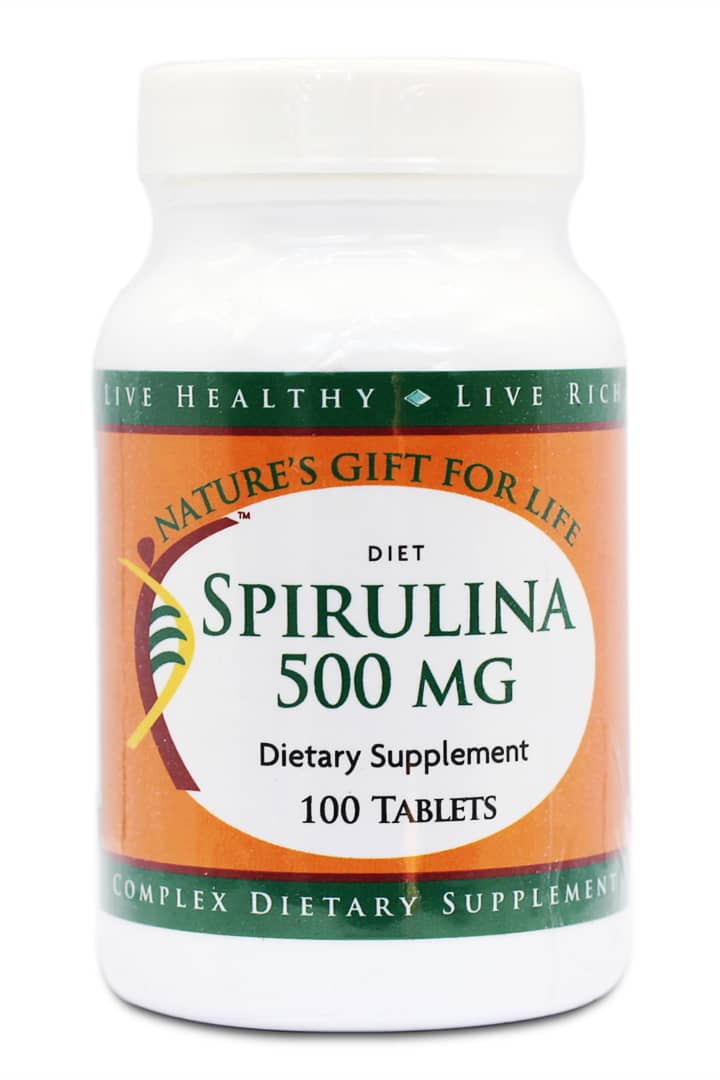
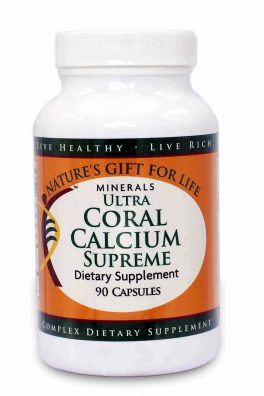
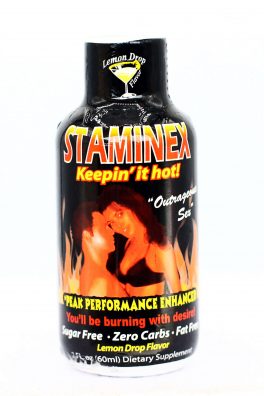
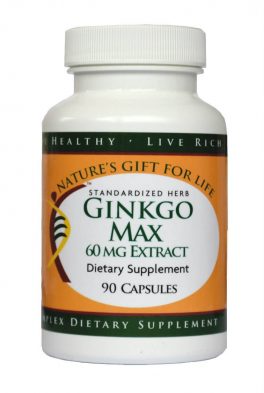
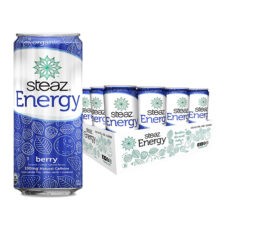
There are no reviews yet.